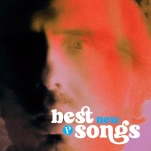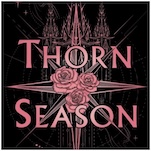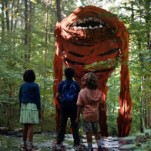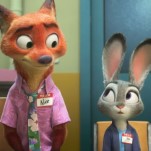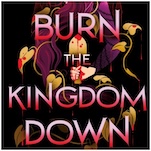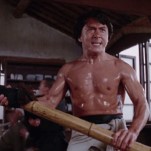The Phantoms of Ryan Davis
The Louisville-bred lyrical marksman spoke with Paste about founding a record label and music festival, building a network of trust with members of his Roadhouse Band, why he struggles with being compared to David Berman, and his generationally perfect new album, New Threats From the Soul.
Photo courtesy of press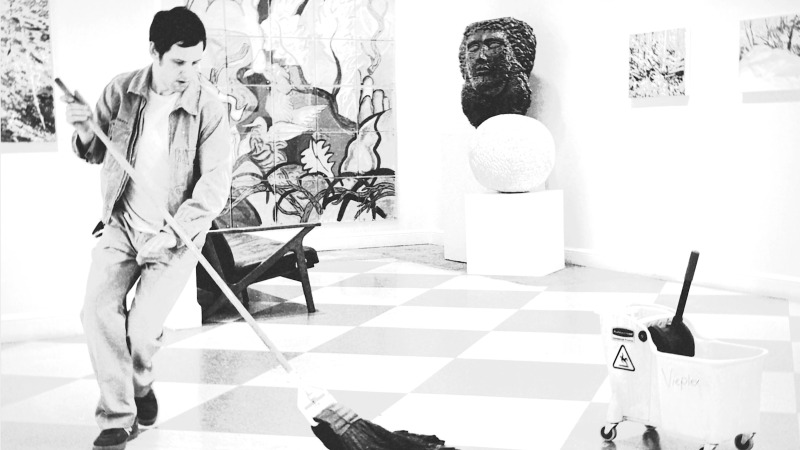
The new Ryan Davis & the Roadhouse Band album came out on July 25th. It also came out on Fourth of July weekend, having leaked onto every streaming service platform three weeks early. Davis tells me that, on the morning before our call, he’s spent hours “yelling at bots on Spotify.” I assure him how, at the very least, Reddit users had nothing but nice things to say about New Threats From the Soul, and he responds by taking that consolation in stride. “It’s not like an early, unmixed version of it leaked, or something,” he jokes. “People are going to hear it soon, anyway. It’s just annoying because we had another single planned. Now it’s like, what’s the point?” The album did eventually get scrubbed from the internet, and Davis and his team picked up where they left off, releasing “Better If You Make Me” just days before New Threats From the Soul correctly arrived.
Davis was born in Louisville, spent his childhood in southern Indiana, and went to college in Chicago. Before starting the howling garage band State Champion at age 20, he was a skater kid from a suburban home, born to parents who let him frequent hardcore shows around the city. Under bridges, he and other skaters would exchange stories and, perhaps unknowingly, adopt a narrative voice and a sense of humor. “The person from which I’m writing a lot of these songs, just growing up in the Midsouth, there’s a sensibility to it like there is with the Southern Gothic writers, or the people from Western Massachusetts,” he says. “It’s a specific regional thing, and I think it’s very much who I am—in a way that’s hard to articulate, really.” Spend enough time with the cave poetry he’s making with the Roadhouse Band and you’ll get a good sense of that voice.
Louisville has always had one foot in the Midwest and one foot in the South. It was the best of both worlds for a young Davis, though not everyone in his life agrees. “My partner is from rural Iowa, up by Minnesota,” he explains. “To her, that’s the Midwest. And then I’ve got bandmates that live in Georgia or Tennessee and that’s the South.” Louisville isn’t the South, but if you drive 40 minutes south, you’ll find Davis’ dad’s cabin in a town where locals have the “thickest, cartoonish Southern accent that you can imagine.” Now, Davis is back in southern Indiana (which he calls “Kentuckiana”), just a few steps across a Louisville bridge. But Louisvillians rarely cross it, he says. “We were just halfway around the world, and everybody in Melbourne hates Sydney for no reason. I think humans are just wired to hate the thing that’s right by them.”
In 2007 in Chicago, the year he graduated college, Davis started his own label. He’d been writing State Champion songs by then but needed a way to get them published. So he wrote “Sophomore Lounge” on CDRs and tapes. “I had a couple of other friends that had started writing songs around that time,” Davis remembers, “and we had this little crew of, maybe, three or four bands that would play regional shows together and help each other push merchandise.” He likens the operation to “playing house,” where you go by the name that sticks first and keep it. At a certain point, Sophomore Lounge got distribution and began pressing vinyls. It was a “legitimate thing,” though Davis still struggles to consider it so seriously. “But I’ve been doing it for almost two decades now, so it’s a big part of my life,” he admits.
Three years later, Davis and James Ardery founded Cropped Out—a multi-venue music festival held on the banks of the Ohio River near downtown Louisville eight times between 2010 and 2018—together. Hosting the likes of Bill Callahan, Pissed Jeans, and the Men, Davis tells me that the festival has been “more instrumental than anything else in my entire life,” because it was a pathway for him to meet likeminded folks in the town he’d grown distant from after leaving the underground arts and music community in Chicago, where he would host house shows and “warehouse art space parties.” “Everybody that you went to painting class with was having these crazy music events on the weekend, and everybody was lifting each other up,” he says. “I made the decision to leave that and move back home to focus on saving money, writing my own songs, and trying to tour.”
The idea to build Cropped Out came during a period where Davis hoped to combat his “lost and uninspired” feelings by booking shows. “We were like, ‘Let’s try to funnel a bunch of bands down to Louisville for a festival to see how it goes.’ And not a ton of people came the first year, nor the second or the third year.” But the process became king, and consistency sparked a reputation and a cult following. “So how did the efforts of someone like Mikey Turner influence you by that point?” I ask Davis. “And how has his approach to music trickled into the work you’re doing now?” He tells me that somebody had compared him to Turner around then, calling State Champion a “less interesting version” of Turner’s band, Warmer Milks. “I was like, ‘Wow, I want to hear Warmer Milks! That sounds like a more interesting version of what I’m doing,’” he remembers. Davis quickly learned that Turner and Warmer Milks lived just an hour down the road from him and they became fast friends. “He’s always using his own internal compass in a way that I feel like I’ve really learned from,” Davis says. “He’s never stuck to one genre, and he’s also never tried to fake anything. He’s never overstretched.”
Davis and Turner did a tour together once—a week of shows in Georgia and Florida hatched without a plan, booked in DIY spaces. A day before the duo left Kentucky, they got together with some keyboards and guitars and began noodling around, concocting sets on the fly. “We came up with a loose structure for it,” Davis remembers. “Every night was totally different, and it was, I think, the first time I ever improvised in a public setting like that.” He’d done jam and improv sessions before, sure, but Turner forced him to get on stage and “trust this internal language we had come up with, just looking at each other and listening to each other.” Davis had always wanted to bring that mode into State Champion but never totally could, because of that band’s formal rock and roll structure. “When that band came to its natural demise, I said, ‘I really want to use that more playful, improvisational nature with whatever I do next,’” he admits. With the Roadhouse Band, he’s done just that.
And the Roadhouse Band is still relatively new, despite the overlap in membership with some of Davis’ other groups, like Equipment Pointed Ankh. What separates the projects is, in Davis’ words, “the wind blowing in a different direction.” The Roadhouse Band’s debut album, Dancing On the Edge isn’t even two years old yet, but it feels worn in, thanks to a cast of players who deeply trust each other’s instincts. “There’s a true lack of ego involved to where, if anybody ever tells me, ‘Hey, I know you worked really hard on that bass part you recorded, but it has to go,’ there’s no questions asked,” Davis says. “There’s no infighting about it. No one’s ever really in charge, including me. There’s this network of trust, knowing that the person who’s playing horns isn’t even a horn player, but they had a cool idea and, sometimes, that’s actually a more interesting idea than bringing in someone that can play horn.”
DAVIS CALLS HIS SONGS “phantoms” and has, previously, worried about putting them out under his own name, since he’s spent nearly two decades in the blur of bands. “I was thinking that this would all, somehow, be roped into this bigger identity crisis of me having to feel like I have ownership over the narrative content, or something,” he reflects. “But I really don’t think it’s happened that much.” To clarify, he’s still not totally comfortable being as out there as he’s had to be since releasing Dancing On the Edge, as far as being a bandleader with his name positioned front-and-center is concerned. “I do think it’s been a greater good for just connecting the music with people that I’ve met along the way, throughout [Cropped Out] and touring—if nothing more than people just being like, ‘Oh, Ryan Davis, that’s the guy from Louisville that we met a couple years ago. Let’s see what he’s up to,’ versus some random band name that, maybe, those people would have missed altogether.” It’s moving beyond that, though, as more strangers are hearing the Roadhouse Band’s music.
The Roadhouse Band lineup on Davis’ new album, New Threats From the Soul, isn’t identical to the lot that’s been tagging along with him on recent tours, but the one constant is Jim Marlowe, one of his best friends and greatest creative connections. They, along with Dan Davis (no relation), have been shredding together since they were in the noisy punk band Tropical Trash at the same time, when Sophomore Lounge was putting out seven-inch discs for the group. Marlowe had been in it already but, after someone quit, Ryan “rose to the occasion” and Dan soon followed. “Even though I didn’t really see myself as a bass player, I learned how to do it,” Davis recalls. “And, ever since those days, just being in practice spaces with those guys and playing riffs into the ground and traveling with each other and understanding each other’s sense of humor and boundaries—when to keep space and when to really dig into each other and push each other—knowing that these are guys that aren’t going to steer each other wrong, we all understand where we’re trying to get with things. And I think the conversations, even when they’re difficult, result in the fruitful art we’re doing.”
-

-

-

-

-

-

-

-

-

-

-

-

-

-

-

-

-

-

-

-

-

-

-

-

-

-

-

-

-

-

-

-

-

-

-

-

-

-

-

-
















